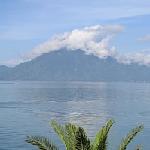
Guatemala Human Rights Commission/USA
.jpg)


.jpg)
Mining and Land Rights
For up-to-date weekly news, visit our blog.March 26, 2012: Indigenous and Peasant organizations march to the capital to demand a solution to agrarian conflict. In solidarity, labor leaders, women's groups and students, among other organizations, joined the march that began last Monday from Coban and which includes over 1,000 indigenous people and peasants. They are asking for an end to evictions, the passage of the Rural Development Law and a rejection of mining projects. [Prensa Libre]
November 28, 2011: Polochic update from Plaza Publica. 800 families from 14 different communities remain displaced in the Polochic Valley after the violent evictions carried out by the sugar cane company Chabil Utzaj last year. Communities whose land was taken and crops destroyed have now reached a level of starvation and desperation. Now community members find themselves insulted and infuriated by the State’s meager food distribution which comes 6 months after the Inter-American Court of Human Rights called for measures to ensure food, health, housing, and security for the 800 families. The food delivered by the State is barely enough to last 2-3 days for the average family. The community believes that if such trends are a signal of a return to the violent, abusive past, they will not hesitate to take up arms to defend themselves and their land.
October 4, 2011: Tufts releases study on Marlin Mine. According to a Tufts University study released yesterday, mining activities in San Marcos are contributing very little to the development of the country and present a high degree of risk for communities located near the Marlin Mine. The Montana-Goldcorp company continues to assert that its practices are responsible and that it strives to enforce transparency in its operations, protection of the environment and the safety of its collaborators and communities. Check out the full report (in both English and Spanish), executive summary, fact sheet, and press release on the Tufts website. Both authors of the report will be in Guatemala and Washington, DC to present the findings this month.
September 26 , 2011: UN Special Rapporteur on Indigenous Peoples denounces extractive projects. The annual report released last week from the U.N. Special Rapporteur James Anaya emphasizes the obligation of the States to respect, protect and uphold human rights, specifically as they relate to the extraction of natural resources and other large development projects. According to the report, such projects seriously threaten the free determination of indigenous populations and constitute one of the most significant sources of violation of human rights for this group. The report focuses on extractive industries—mining, hydrocarbon, forestry and hydroelectric dams—which operate within and near to indigenous territories. Beyond the right to free determination, extractive projects also violate the rights to consultation, territory, natural resources and health, among others. Private companies and public bodies involved in extractions projects have also contributed to the violation of human rights. The report analyzes the negative social, cultural, environmental and health effects of such projects and recommends a series of measures to hold States and companies accountable for the respect of international norms and recognition of the rights of indigenous groups. Read the full report here: [In English] [En español].
August 11, 2011: More attacks in Polochic. The portal of the Guatemalan News Agency informed the public today that 22 families were attacked by private security guards believed to be from the sugar mill Chabil Utzaj in Polochic, Alta Verapaz. [La Hora]
______________________________________
July 29, 2011: Eviction leaves one dead and three injured. During an eviction of 250 families carried out yesterday by the National Civil Police in Retalhuleu a campesino was killed and three agents were injured in the ensuing violence and protest. The families had been occupying the land on the finca for seven months claiming that they had not yet received payments for their work and had nowhere else to go. [El Periodico]
______________________________________
July 13, 2011: Citizens protest in front of National Palace against Quetzaltenango mine. Quetzaltenango residents held a demonstration this morning outside the National Palace of Culture in opposition to the regulation of community consultation. The July 21 public hearing is scheduled in the Constitutional Court where they hope to prove that this was an agreement between the government and entrepreneurs. [La Hora]
______________________________________March 15, 2011: Organizations denounce the violent evictions carried out by Guatemalan police, military, and landowners in the Polochic Valley. According to preliminary reports, 640 Q’eqchi’ families dedicated to farming the abandoned lands of a defunct sugar-processing plant in Guatemala’s Polochic Valley were violently evicted from their homes. Soldiers and National Police reportedly arrived at the community in 35 vehicles and proceeded to forcibly remove the campesinos, many of whom were left unemployed when the Chabil Utzaj plant closed in 2005. Antonio Bed Ac was killed and three others reported serious injuries. The Committee for Campesino Unity (CUC) has warned that the police and military are planning further evictions and has blocked of road to prevent witnesses from arriving on the scene. The CUC calls on national and international organizations to denounce these violent acts. [Photos from Polochic evictions ]
MORE NEWS
Home | Site Map | Contact Us
3321 12th Street NE, Washington, DC 20017
This site is maintained by the Guatemala Human Rights Commission/USA
as a means of informing the general public of the Commission's work
on behalf of the people of Guatemala
